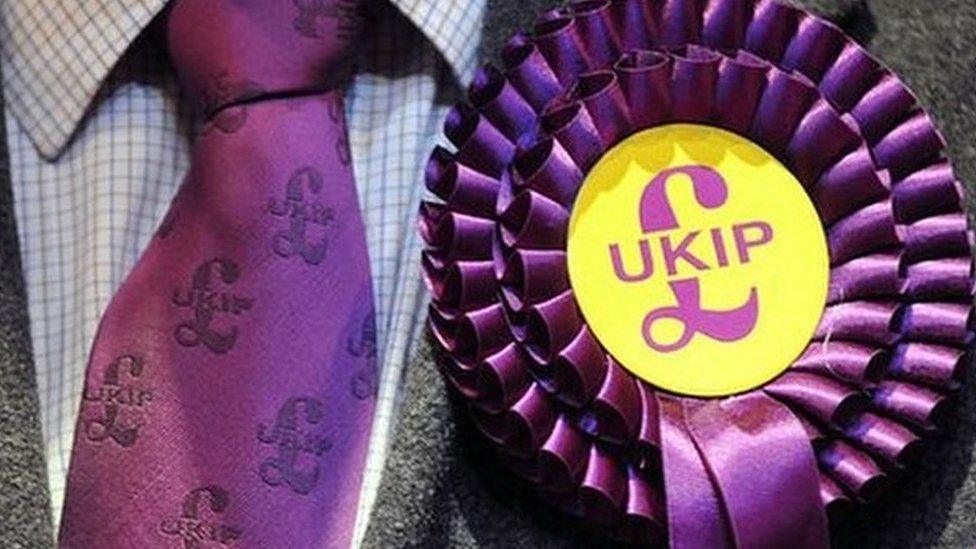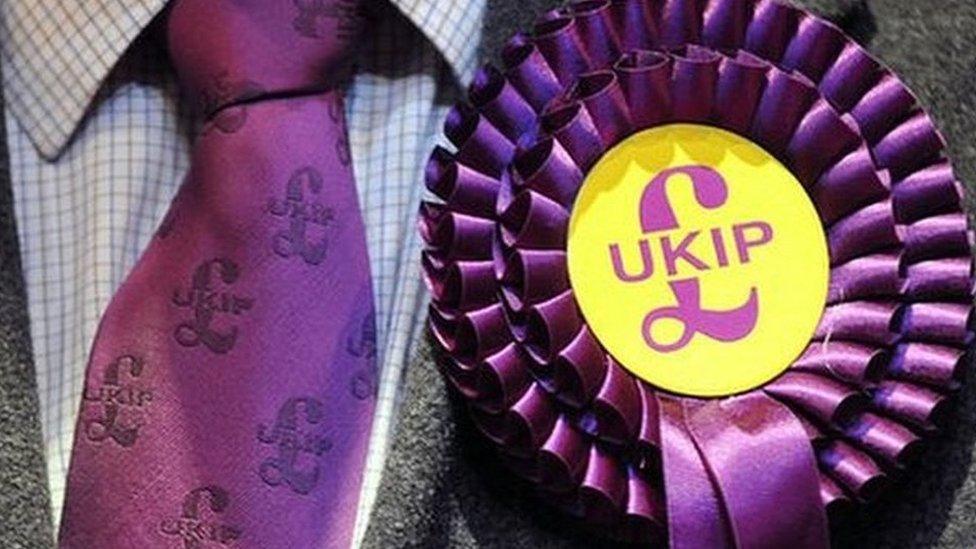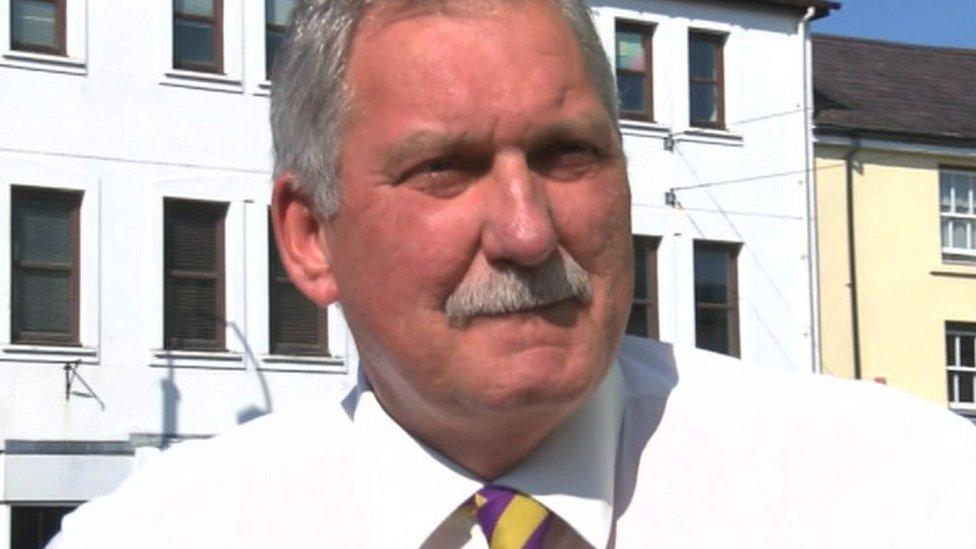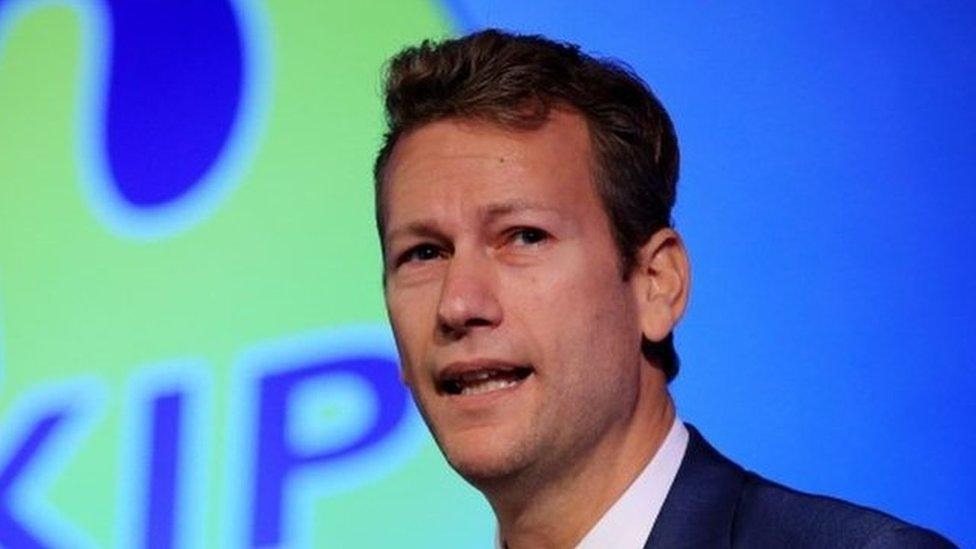Welsh Assembly election: UKIP's sights on Cardiff Bay
- Published

The turnaround in UKIP's fortunes in Wales since 1999 has been remarkable.
The party did not contest the first assembly election that year.
In those days it strongly opposed the very existence of the institution.
And at the general election a couple of years later, UKIP got 12,552 votes across Wales, just 0.9%. It lost all 25 of its deposits.
Spool forward 14 years to the spring of 2015, and UKIP had risen to third in the popular vote in Wales, ahead of Plaid Cymru and the Liberal Democrats.
It got 204,330 votes at the general election - 13.6% - and came second in six constituencies.
That result followed UKIP's success at the European election in 2014 where it finished second in Wales, beaten by Labour by just 4,349 votes.
The rise of the party has brought with it significant growing pains.
The build-up to this election has been beset by arguments over candidate selection.
UKIP originally planned to have a central committee pick its regional candidates, the ones who will have the best chance of getting elected.
That angered some long-serving UKIP Wales members.
The matter was belatedly put to a vote of the membership, but only after some fierce criticism of UKIP Wales leader Nathan Gill.
A petition calling for his resignation was organised in February, amid claims he had failed to show leadership on the selection issue.

Neil Hamilton's bid to seek election for UKIP in Wales has angered some party members
Several in the party in Wales felt candidates who were not part of UKIP Wales were being "parachuted in" to a contest where UKIP stood a good chance.
Kevin Mahoney, a councillor in the Vale of Glamorgan, left the party in protest against former Conservative MPs Neil Hamilton and Mark Reckless, and former aide to Nigel Farage Alexandra Phillips, seeking selection.
Behind the scenes, Mr Farage and Mr Gill strongly opposed Mr Hamilton's candidacy.
The argument also brought to the fore bitterness among some members in Wales over the fact Mr Gill was appointed as leader rather than elected.
It is now likely a leadership election will happen after 5 May.
The increased support UKIP has seen in Wales since 1999 has not yet been significantly rewarded in terms of seats.
Nathan Gill is an MEP for Wales but UKIP has no Welsh MPs or AMs.
And it only has one representative in Welsh local government: Gethin James in Ceredigion, who had been elected as an independent.
Because of the proportional representation element of the assembly system, UKIP now has a good chance of picking up some seats to reflect its level of support.
But with UKIP's raison d'etre - getting the UK out of the EU - being put to the vote just weeks after the assembly election, attention in Wales is likely to then switch to the question of what a UKIP group of assembly members is for.
- Published7 March 2016

- Published15 February 2016

- Published25 February 2016

- Published10 February 2016
